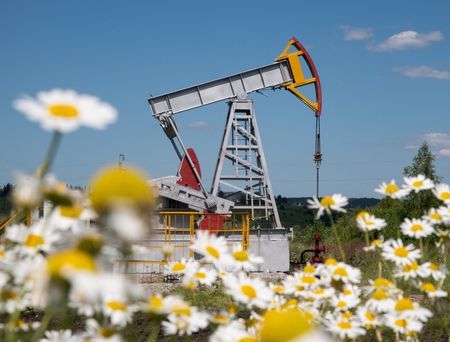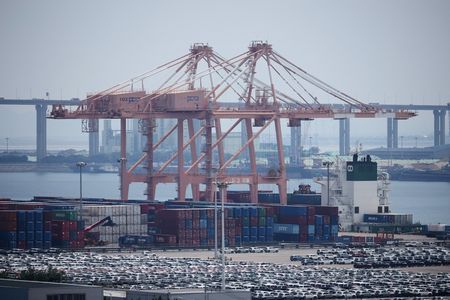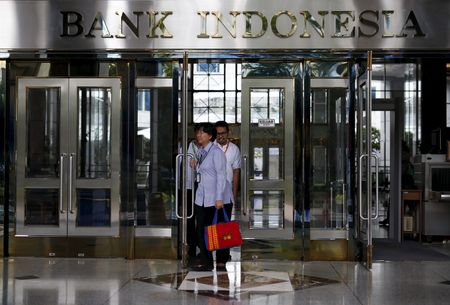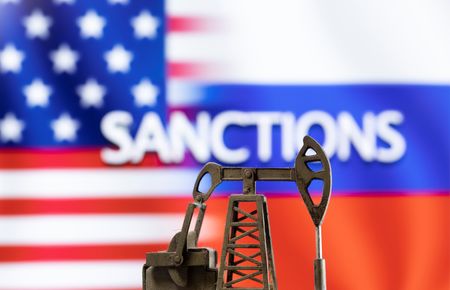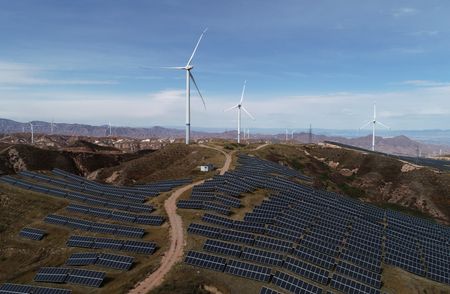By Enes Tunagur
LONDON (Reuters) – Oil prices were little changed on Monday as investors assessed the impact of Ukrainian drone attacks on Russian refineries, while U.S. President Donald Trump said he was prepared to impose sanctions on Russia if NATO nations stop buying Russian oil.
Brent crude futures rose 7 cents, or 0.1%, to $67.06 a barrel by 1121 GMT while U.S. West Texas Intermediate crude was at $62.80 a barrel, up 11 cents, or 0.18%.
Oil remains range-bound between $65-70, underpinned by disruption risks from Ukrainian attacks on Russian energy facilities and renewed calls from Trump for tougher secondary sanctions on Russian crude buyers, said Saxo Bank analyst Ole Hansen.
Ukraine launched a large attack with at least 361 drones targeting Russia overnight, sparking a brief fire at the vast Kirishi oil refinery in Russia’s northwest, Russian officials said on Sunday.
Both crude contracts gained more than 1% last week as Ukraine stepped up attacks on Russian oil infrastructure, including the largest oil exporting terminal, Primorsk.
Primorsk has a capacity to load about 1 million barrels per day of crude, while the Kirishi refinery processes about 355,000 barrels per day of Russian crude, equal to 6.4% of the country’s total.
Pressure is mounting on Russia as U.S. President Trump said on Saturday that the U.S. was prepared to impose fresh energy sanctions on Russia, but only if all NATO nations ceased purchasing Russian oil and implemented similar measures.
Oil also received some support from solid refinery demand in China last month and a decline in US crude inventories, while weaker economic data from China weighed on prices, said UBS analyst Giovanni Staunovo.
Investors are also awaiting the interest rate decision by the U.S. Federal Reserve at its September 16-17 meeting, at which the bank is expected to reduce interest rates. Lower borrowing costs could boost fuel demand.
Last week, softer job-creation data and rising inflation in the U.S. raised concerns about economic growth in the world’s largest economy and oil consumer.
(Reporting by Florence Tan; Editing by Muralikumar Anantharaman, Christian Schmollinger, Emelia Sithole-Matarise and Chizu Nomiyama)

